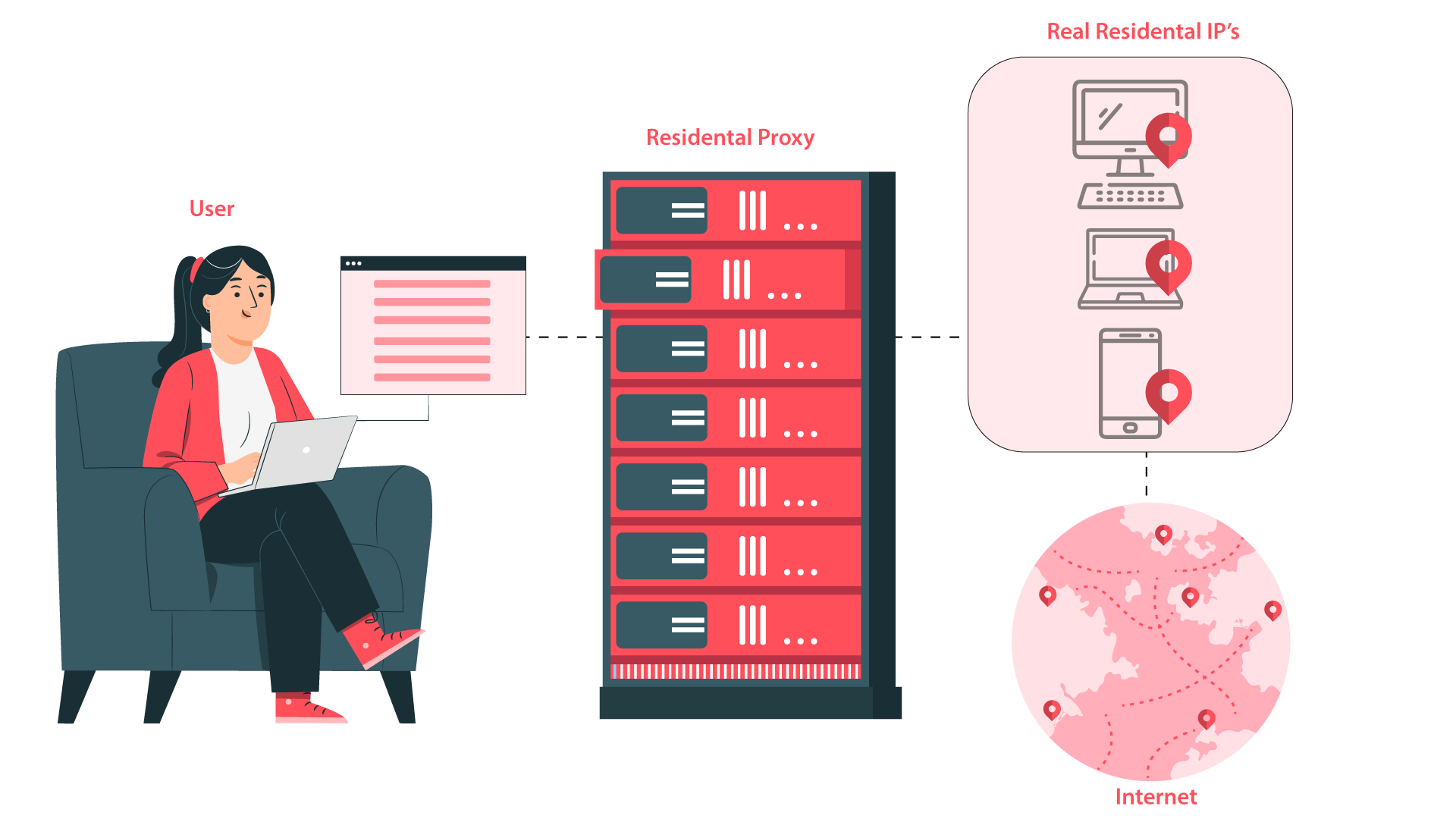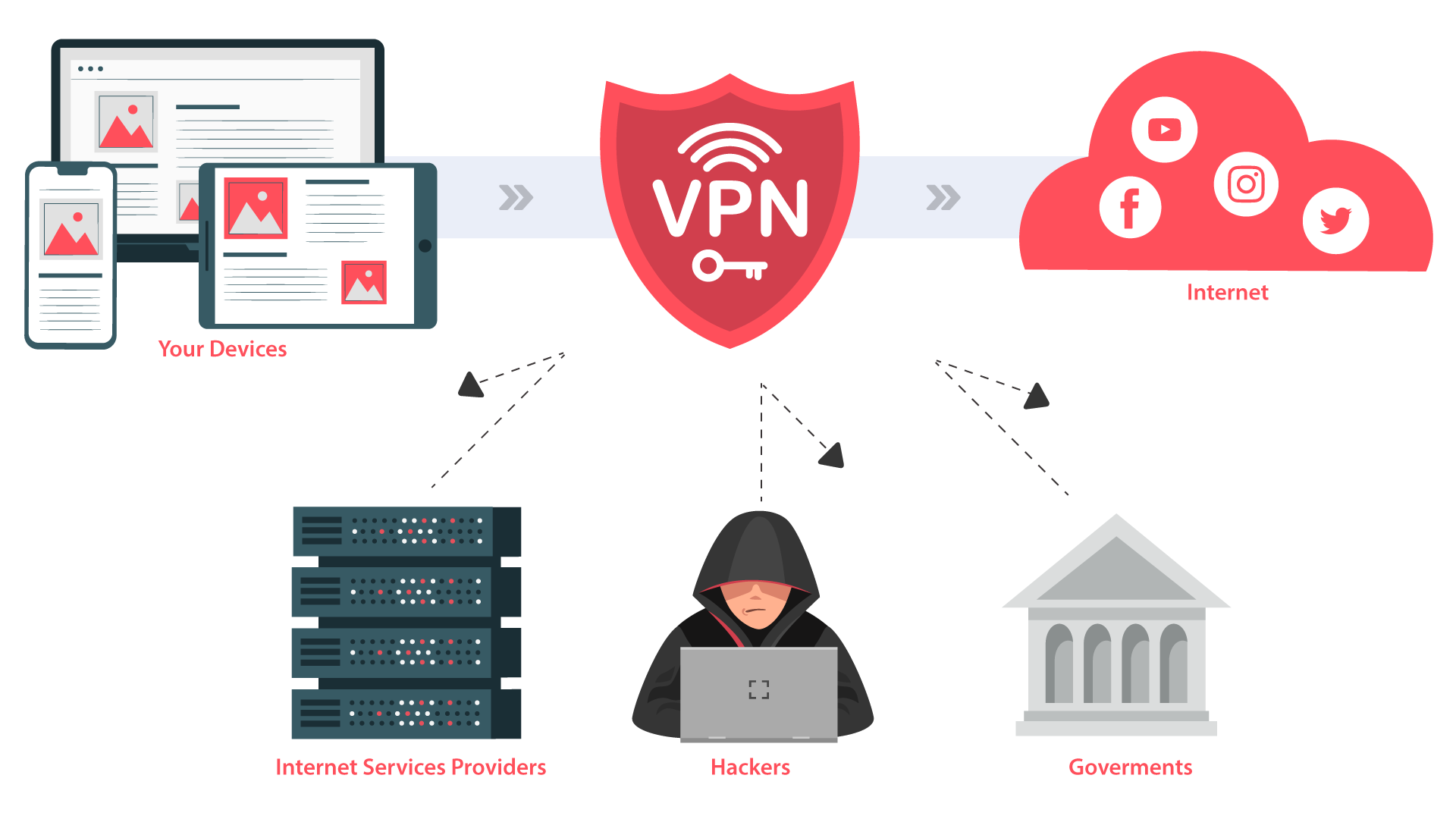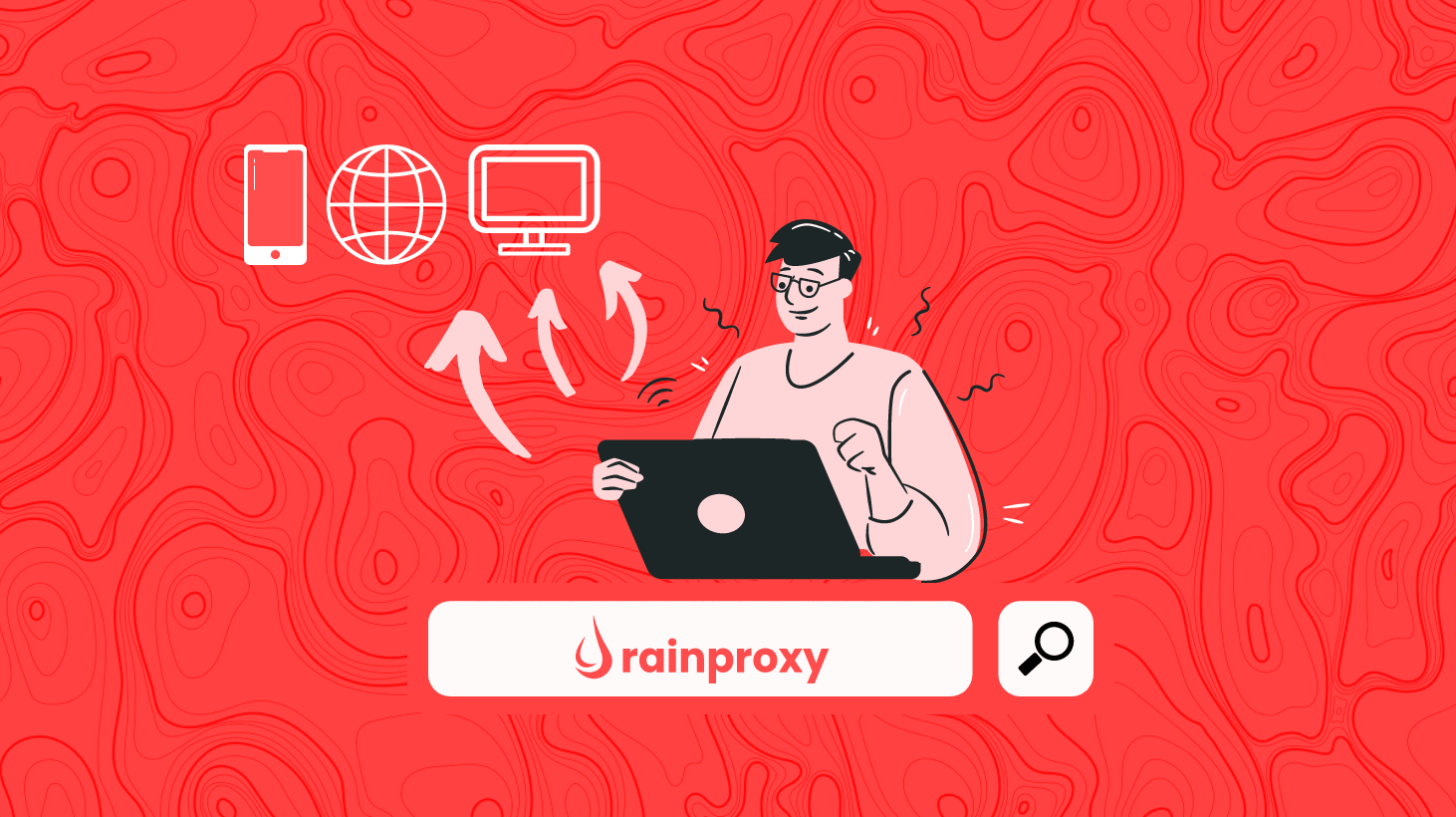
What is the Difference Between Residential Proxy And VPN?
Feb 12, 2023
What is the Difference Between Residential Proxy And VPN?
You can do almost anything online, including employment, shopping, and multiplayer gaming. We must be more cautious with our privacy and information the more options we have online. Even if we can perform a lot of business and pleasure activities from our computers thanks to the Internet, ensuring that our information is kept safe from cybercriminals is crucial.
Smart business customers who value their privacy should compare VPN and residential proxy when it comes to securing data and confidential material and gathering data from the entire web for business needs.
In addition to protecting our privacy, VPNs and residential IP proxies give us access to a wider range of online services. You can have the peace of mind that your private information, such as your address and credit card information won't be collected, and you'll have access to more online activities. Although using residential proxies and VPNs could be a sensible strategy, there needs to be more clarity.
Why Residential Proxies and VPNs Are Important?
Dedicated residential proxies and VPN services are widely available as well. Knowing how these tools work and which one suits your needs best. Proxy and VPN services can provide security and privacy, but they also differ. It can be easier to choose which to use and when if you know the distinctions between the two.
As they allow us to be geographically located and serve as a digital fingerprint for Internet users, IP addresses are crucial to us and ISPs (Internet Service Providers). A website needs to know where you are physical to show you the appropriate information. You want a search engine to display restaurants around you if you type in "restaurants" in the search box. This is significant for mapping technologies as well.
A residential proxy functions slightly differently than a VPN but offers the same level of security. Instead of the IP address of your personal device, a residential proxy IP address gives you an IP address that the app or site you're accessing displays.
Residential proxies are highly helpful since they seem to websites as IP addresses installed by the ISP. Datacenter proxies are another class of proxy that is useful for carrying out various projects since they allow you to obtain several IP addresses simultaneously.
However, because destructive bots use datacenter proxies to gather a lot of information, websites have been trained to see them as potential risks. A datacenter proxy may occasionally be suspended without cause. However, a residential proxy appears "cleaner" on the website. Therefore, it is likely to continue being used.
Even if having access to your IP address allows a website or application to provide you with more accurate information, it's not required to have this information to enjoy a positive online experience—especially if you use a residential proxy.
Some businesses go too far with geographical targeting, tracking the activities of your IP address for hyper-targeted advertising. Some of that tracking can be prevented with the help of a residential IP VPN that encrypts your IP address. Although you can still enter your personal information, using a VPN or a residential proxy will provide you with an additional layer of security that will make browsing the Internet simpler.
Residential Proxy Servers

An ISP-provided IP address is used by a residential proxy server rather than a data center. These addresses are linked to a tangible object, like a laptop or smartphone.
The website you are accessing cannot detect your use of a proxy when utilizing a residential proxy. Instead, it will seem as though you are using a regular IP to connect. Security systems believe residential IPs are allocated exclusively to genuine residential addresses, which is why they do.
Virtual Private Network (VPN)

Additionally, a VPN hides your ID address so that websites cannot identify your real location or IP address and reroutes your internet traffic through a remote server. It operates on the operating system and reroutes all traffic, including that coming from background apps and browsers.
Your traffic connecting the device and the Internet is hidden by a VPN. As a result, the IPS tracks your online actions and gathers data. Additionally, the encryption protects you from snoopers and hackers who might hack your device, website monitoring, and government spying. A VPN also offers you greater online security and privacy.
Difference between VPN and Residential Proxy
Residential proxy and VPN are two tools that are similar yet different in some important ways. For instance, while both programs can mask your IP address, only a VPN can reroute your internet traffic through an encrypted tunnel. A proxy acts as a go-between for you and the Internet. As a result, before connecting to a website directly, you will first connect through a proxy server.
The server then uses the website to access it and returns the information it finds. It does this by using its IP address. A VPN, however, uses an external server that routes all connections through it. Current cryptographic algorithms encrypt these connections, establishing a secure channel between your computer and the websites.
Advantages of Residential Proxy vs VPN
Both a residential VPN service and a residential proxy have certain general advantages. Below are some of our strongest arguments. When comparing a VPN to a residential proxy for security, an individual user may find a VPN to be more effective. Both individuals and companies can have their bespoke residential proxies.
Web Scraping
Web scraping is frequently used by digital marketing companies and individuals looking to remain on top of online shopping discounts. Because the IP address appears safer to websites generally, a residential proxy can allow you to work on this rather easily without raising suspicion.
Network Speed
Residential proxies typically have faster network speeds and more bandwidth. You are not competing for bandwidth with other users, especially using a dedicated proxy. The main issue with free proxies or residential VPNs is that they have no control over how many people are using the Internet at once, which results in significant latency. There is less interference since proxy servers can distribute traffic more efficiently.
The Final Consideration
It boils down to choosing between privacy and speed when determining if you require a residential proxy or VPN. A VPN is a wonderful option if you're an individual who wishes to encrypt their connection and safeguard their private info. However, residential proxies from reputable providers such as Rainproxy offer more than simply online security and privacy.
Residential proxies assist you in growing your business, adding a layer of protection, and protecting your online identity. You may carry out a range of business-related internet operations effectively and safely by using them.




